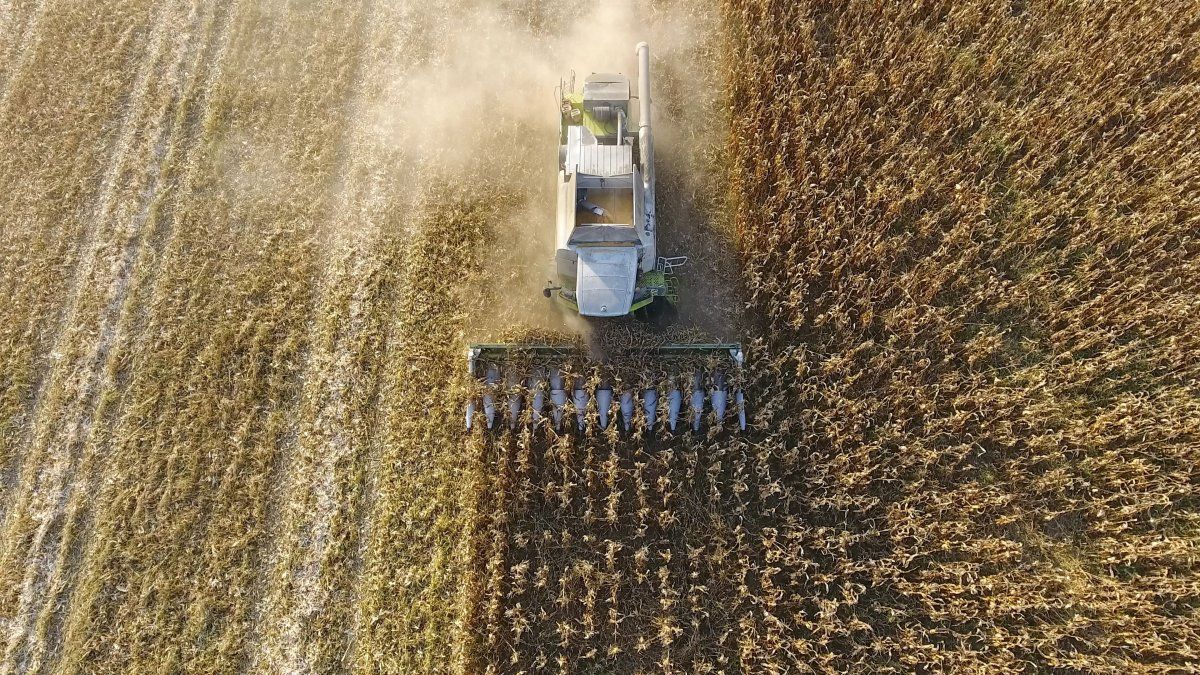Lipsa owes its name to the acronym “Leadership in Agricultural Sustainability Production”, now betting on specialties and wants to industrialize corn.
Lipsa is a national capital company, founded 14 years ago by Cristian Moudjoukian, a young agronomist who began to exploit a rented field of just over 1,000 hectares, today this company is a leader in production in northern Argentina, it sows around 120,000 hectares and produces annually around 500,000 tons of grains.
The content you want to access is exclusive to subscribers.
In parallel, it is advancing with expansion plans linked to the industrialization of corn and is committed to the production of specialties for direct export.


Lipsa aims to invest in added value
“My family had no connection with the countryside and that is why the work I had to do to get into the business was completely from scratch. Whether it’s going out to look for fields to rent, linking up with suppliers or getting credit for working capital. We really had explosive growth because in just 14 years we consolidated ourselves as one of the leading companies in agricultural production in Argentina and a lot of that has to do with continuous work, but also the moment in which we began to operate. We took advantage of the fact that other large planting companies were withdrawing from the business and there were many fields available for rent.r. Then, we move forward with the asset purchase and part of the success was also there, because we selected each field with great responsibility regarding its agronomic and We have paid, for example, US$1,500 per hectare and today they are quoted at between US$6,000 and US$7,000 per hectare.”, explains in dialogue with Ámbito Cristian Moudjoukian, leader of Lipsa.
Another of the key milestones in the history of this company, which today competes head to head with other large seeding firms with a long history, is that it was encouraged to venture into the capital market to obtain financing to support its growth.
“Agricultural companies do not have a great tradition of resorting to the capital market and in the case of Lipsa it was quite the opposite, when we were an SME we launched our first Negotiable Obligations (ON) and it was really a very good experience and from then on we did not we stop. It was also key to add our Markets and Finance leader, Maximo Lichtschein, to the team, a young, driven person who immediately understood where he wanted to take the company. and we began to link ourselves with more credit institutions, with risk rating agencies, with the capital market. We went to knock on the doors of international banks and they assisted us and gave us credit. Another very important question was the close relationship we forged with our suppliers of inputs and services and export companies, they trusted us, a young firm, with no known surnames in the field and for that we are very grateful”says Moudjoukian.
Regarding future plans, Lipsa has countless investment projects in the pipeline. First of all, a specific commitment to the planting, processing and export of specialties stands out, where beans and chickpeas stand out.
“Currently we already have around 3,000 hectares of these crops planted and we have structured a direct marketing area to be able to export, in parallel we are in connection with processing plants in the area to take advantage of idle capacity. Another issue on which we are working hard and which is where our investments will mainly be directed is the addition of value at origin, fundamentally corn.. At present andWe send around 18,000 trucks of corn to the portWe are among the main producers of this crop in northern Argentina and we want this production to remain in the area and industrialize it to generate work and growth. We are evaluating installing a balanced feed plant, also entering into the production of ethanol and, on the other hand, we received a proposal from an international group to install a pig farm, these are all latent possibilities that will soon be realized.. What’s next for Lipsa is vertical growth,” says Cristian Moudjoukian.
Source: Ambito




